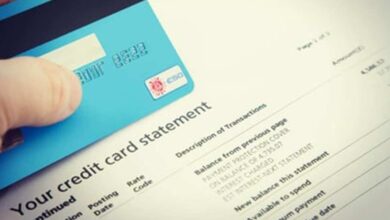Events are one of the most common ways to celebrate, commemorate and build community. They can serve as a way to bring people together in celebration, or simply promote awareness about something important. The key to planning an event is first understanding what type of event you’re organizing: If it’s strictly for fun (or fundraising), then keep things simple. But if your goal is also educational or professional development—and you want attendees to take something away from the experience—then consider including some sort of formal agenda with learning objectives along with whatever else happens at your event.
Setting the Agenda
What is an agenda?
An agenda is a list of items to be discussed at a meeting or event. It helps people prepare for the meeting, so they know what they’re going to talk about and when it will happen.
Why is it important to set an agenda?
Agendas help make sure that everyone who needs to speak up during a meeting gets their chance, as well as ensures that no important topics get overlooked during discussion. If there are multiple speakers scheduled for one time slot (for example: two speakers at 3pm), then having an agenda also ensures that each speaker gets ample time for their presentation before moving on with the next topic on your list!
Planning and Organizing the Venue
Choosing a venue is an important part of event planning. You want to make sure that your event space fits the type of event you are planning, as well as the number of people who will attend and any other requirements.
- Choose a venue that is in line with your event: If you’re hosting a small cocktail party at home, then choosing a large ballroom may not be necessary or practical. On the other hand, if you’re having an outdoor wedding ceremony with 500 guests attending from all over the world (and want them all to fit comfortably), then renting out an entire sports stadium might be necessary!
- Choose a venue that is accessible for everyone involved: If it’s difficult for people traveling long distances or those who don’t have cars (such as public transportation users), then consider making arrangements beforehand so they can get there easily without worrying about driving time/distance issues on top of everything else going on during such events like weddings etcetera.
- Choose affordable options wherever possible since most budgets are tight these days anyways due t o economic conditions worldwide.”
Getting the Right People and Partners on Board
The first step to planning a successful event is getting the right people and partners on board. It’s important to choose individuals who are passionate about your cause, and can bring their own unique skillset to help make it happen.
You may want to start by asking yourself: Who do I know who might be interested in helping me with my project? Then consider how each person could be useful during its execution–what kind of skills does he or she have? Do they have connections within our industry that would benefit us?
Once you’ve identified prospective team members, reach out! Be sure not only explain why this project matters so much for them (and why it will be fun), but also give them options for how they can contribute their time and energy–whether it’s through volunteering at an event or donating money towards its creation costs
Creating an Event Website
You can create a website for your event by using a platform like Wix or Squarespace. You can also hire someone to make one for you, if you’d prefer not to do it yourself. Once you have your website up and running, be sure to include all of the following:
- A description of what will take place at the event (e.g., “Come join us for our annual conference where we’ll discuss how best practices in HR have changed over time.”)
- An overview of who should attend (e.g., “This conference is open only to employees within our company.”)
- The date(s) and time(s) when registration opens as well as closes (e.,g., “Registration will open on January 1st at 9am EST and close on March 1st at 5pm EST.”). Make sure that all registrants have an opportunity before then!
Marketing Your Event
In addition to social media, email marketing and print advertising are also effective methods of promoting your event. Social media offers the advantage of reaching a large audience in an instant, but it’s important to remember that many people prefer not to be bombarded with advertisements on their newsfeeds or timelines. Email marketing gives you more control over who sees your message and also allows for more customization when designing the email template itself (for example, adding links directly from a spreadsheet). Print advertising could include flyers or posters at local businesses where people might see them while out shopping or eating at restaurants near the venue where the event will be held. Radio and TV ads may also be worth considering since they’re usually cheaper than other forms of advertising due to lower production costs.
Use Event Management Software
Using event management software like Cvent alternatives and competitors is an excellent way to stay organized and on track with your planning. The software will allow you to keep track of all the details that need to be considered for an event, such as budgeting, scheduling, and even ticketing.
You can also use it as a central hub for sharing information with others involved in the planning process. This allows everyone involved in the project (including sponsors, vendors and volunteers) access from anywhere at anytime so they can contribute their ideas or feedback on what they think should happen next.
Key Takeaway
You can organize a successful event by creating a plan, getting the right people and partners, creating a website and marketing your event.
First of all you need to decide on who will be involved in planning the event. Make sure that everyone has their own specific roles and responsibilities for each stage of your project. In addition to this it is wise to include someone who has experience with organizing events as they will be able to guide you through any problems that arise during the process of planning or organizing an event.
When looking for venues consider if there is enough space available for all attendees at one time; also consider whether or not there are any restrictions on what kind of food/drinks can be served at this venue (i.e., no alcohol allowed). If possible try booking spaces closer together rather than farther away so people don’t have far distances between them when traveling between locations during breaks between sessions etcetera…this also saves time which could otherwise be spent waiting around while waiting for others before heading back again after lunch break perhaps?
Conclusion
In conclusion, it is important to remember that there is no one-size-fits-all approach to planning an event. It depends on the type of event you’re hosting and what your goals are. We hope this guide has helped you understand the ins and outs of event planning so that you can create an unforgettable experience for your guests!








